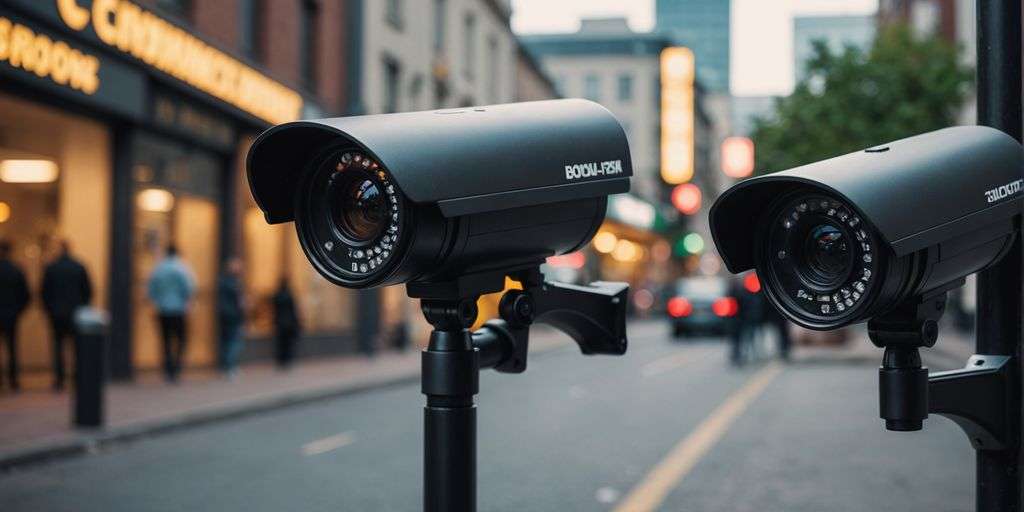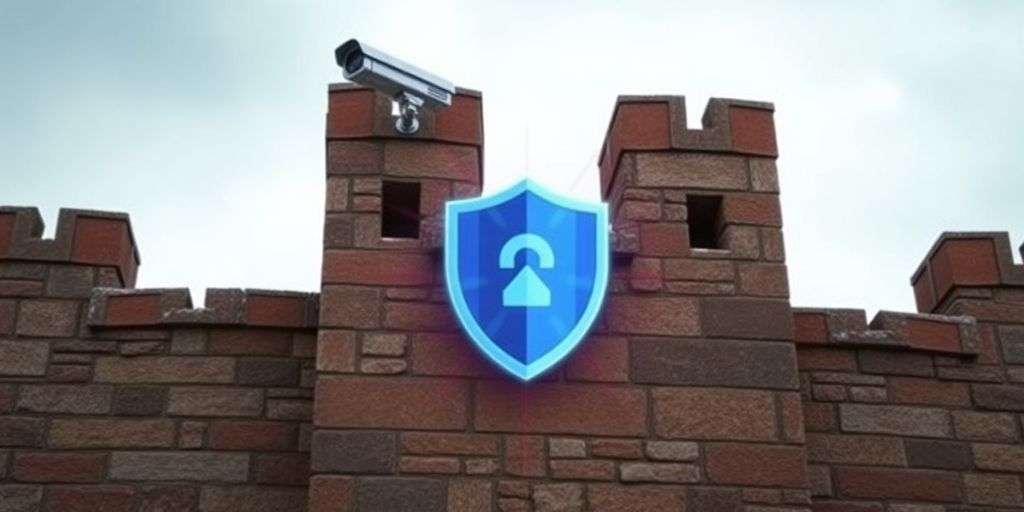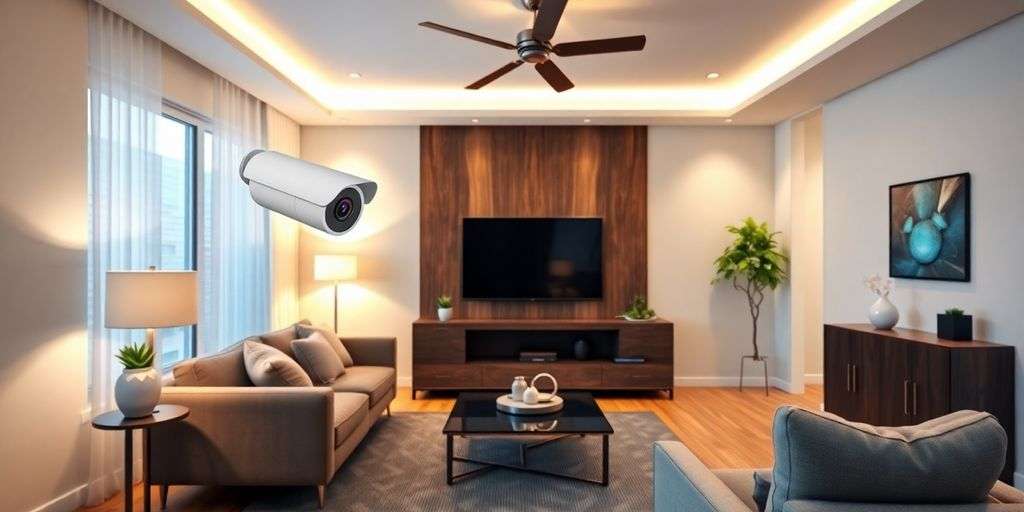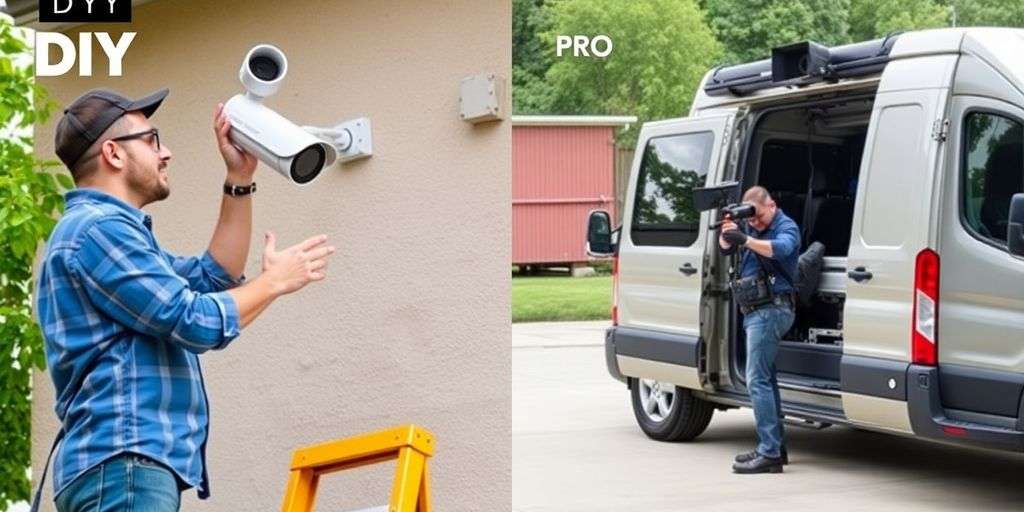Understanding Wired CCTV Systems

Advantages of Wired CCTV Cameras
Wired CCTV cameras are known for their reliability and robust performance. They use physical cables to transmit video signals and power, ensuring a stable and continuous connection. This setup is less prone to interference and signal loss, making it a dependable choice for surveillance. The consistent video transmission and resistance to interference allow these cameras to support advanced features, providing high-quality footage crucial for identifying details like faces and licence plates.
Challenges of Wired Installations
Installing wired CCTV cameras can be more labour-intensive and costly compared to wireless systems. The process involves running cables from each camera to a central recording device, such as a digital video recorder (DVR) or network video recorder (NVR). Despite the higher initial effort, the long-term benefits often outweigh these challenges. The fixed nature of the installation also means that the cameras are generally more secure and tamper-resistant.
Ideal Scenarios for Wired Systems
Wired CCTV cameras are versatile and can be used in various environments, from residential properties to commercial and industrial sites. In homes, they provide reliable security for entrances, driveways, and perimeters. In commercial settings, they help monitor high-traffic areas, prevent theft, and ensure employee safety. Industrial sites benefit from wired CCTV systems by overseeing large areas, monitoring machinery, and enhancing safety protocols.
The primary advantage of wired CCTV cameras is their consistent and high-quality video transmission, which is crucial for effective surveillance.
Exploring Wireless CCTV Options
Benefits of Wireless CCTV Cameras
Wireless CCTV cameras offer a versatile and convenient solution for modern surveillance needs. Their ease of installation, flexibility, and remote access capabilities make them an attractive option for enhancing security in various environments. The absence of extensive cabling simplifies the setup process, making it ideal for both residential and commercial properties. Additionally, wireless cameras can be easily relocated, providing a level of adaptability that wired systems cannot match.
Potential Drawbacks of Wireless Systems
Despite their many advantages, wireless CCTV systems are not without challenges. Signal interference is a common issue, especially in areas with numerous electronic devices. This can lead to reduced video quality or even temporary loss of connection. Moreover, wireless systems require robust security measures to protect against hacking and unauthorised access. Regular updates and strong passwords are essential to maintain the integrity of the surveillance system.
Best Use Cases for Wireless Cameras
Wireless CCTV cameras are widely used in various settings, including residential, commercial, and public spaces. In homes, they are ideal for monitoring entry points, driveways, and interior spaces, providing peace of mind for homeowners. Businesses utilise wireless cameras to oversee customer areas, storage rooms, and exterior perimeters, helping to prevent theft and ensure employee safety. In public spaces, these cameras enhance security and assist in crime prevention by monitoring streets, parks, and other communal areas.
Wireless CCTV cameras offer a flexible and user-friendly option for those looking to enhance their security measures without the hassle of complex wiring. However, it is crucial to consider potential drawbacks such as signal interference and the need for strong security protocols.
Comparing Installation and Maintenance
Ease of Installation
Wired CCTV systems often require professional installation due to the need for extensive cabling and infrastructure setup. This can be time-consuming and may involve drilling holes and running cables through walls. In contrast, wireless CCTV cameras are generally easier to install. They can be set up by almost anyone with basic technical skills, as they do not require extensive wiring.
Maintenance Requirements
Maintaining wired CCTV systems can be more demanding. Regular checks on the physical connections and cables are necessary to ensure the system remains operational. On the other hand, wireless systems require less physical maintenance but may need frequent software updates to ensure security and functionality.
Cost Implications
The initial cost of installing a wired CCTV system can be high due to the need for professional installation and extensive cabling. However, once installed, the maintenance costs are generally lower. Wireless systems, while cheaper to install, may incur higher ongoing costs due to the need for regular software updates and potential subscription fees for cloud storage. Overall, the choice between wired and wireless systems often comes down to balancing initial costs with long-term expenses.
Security and Reliability Considerations
Signal Interference and Reliability
Wireless CCTV systems can sometimes face signal interference from other electronic devices, which may affect their reliability. Wired systems, on the other hand, are generally more stable as they are not prone to such issues. However, they can be affected by physical damage to the cables.
Data Security Concerns
Wireless signals can be vulnerable to hacking if not properly secured. It is crucial to use strong, unique passwords and enable encryption protocols like WPA2 to protect the footage from unauthorised access. For cloud-based systems, implementing multi-factor authentication (MFA) and using a cloud access service broker (CASB) can help mitigate risks.
Traditional on-premises systems are generally more secure as they require physical access to the hardware. However, they still need basic cybersecurity measures like identity and access management (IAM) and encryption for data protection.
Long-term Performance
Wired systems often offer better long-term performance due to their stable connections. They are less likely to experience issues related to signal loss or interference. Wireless systems, while more flexible, may require more frequent maintenance to ensure optimal performance.
Conclusion
Choosing between wired and wireless CCTV systems boils down to your specific needs and preferences. Wired systems offer reliable and high-quality video, making them ideal for areas where consistent surveillance is crucial. On the other hand, wireless systems provide flexibility and easier installation, perfect for those who prefer a hassle-free setup. Both options have their pros and cons, so it’s important to weigh them carefully. Ultimately, the best choice is the one that fits your security requirements and lifestyle. Happy securing!
Frequently Asked Questions
What are the main advantages of wired CCTV cameras?
Wired CCTV cameras provide a stable and high-quality video signal because they use physical cables. This means there’s less chance of interference from other devices, resulting in clearer and more reliable footage.
Are wireless CCTV cameras difficult to install?
Wireless CCTV cameras are generally easier to install compared to wired systems. They don’t require extensive cabling, which makes the setup process simpler and quicker.
Which is more cost-effective: wired or wireless CCTV systems?
The cost-effectiveness of wired vs. wireless CCTV systems depends on your specific needs. Wired systems might have higher initial installation costs due to cabling, but they often require less maintenance. Wireless systems can be cheaper to install but might need more frequent maintenance and battery replacements.





